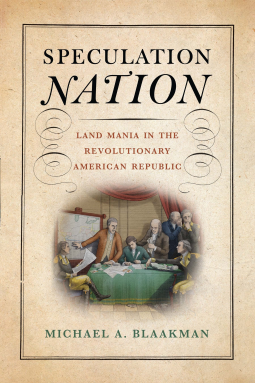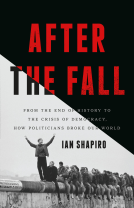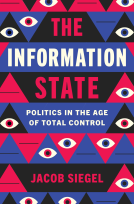
Speculation Nation
Land Mania in the Revolutionary American Republic
by Michael A. Blaakman
This title was previously available on NetGalley and is now archived.
Send NetGalley books directly to your Kindle or Kindle app
1
To read on a Kindle or Kindle app, please add kindle@netgalley.com as an approved email address to receive files in your Amazon account. Click here for step-by-step instructions.
2
Also find your Kindle email address within your Amazon account, and enter it here.
Pub Date Sep 19 2023 | Archive Date Sep 19 2023
Talking about this book? Use #SpeculationNation #NetGalley. More hashtag tips!
Description
During the first quarter-century after its founding, the United States was swept by a wave of land speculation so unprecedented in intensity and scale that contemporaries and historians alike have dubbed it a “mania.” In Speculation Nation, Michael A. Blaakman uncovers the revolutionary origins of this real-estate bonanza—a story of ambition, corruption, capitalism, and statecraft that stretched across millions of acres from Maine to the Mississippi and Georgia to the Great Lakes.
Patriot leaders staked the success of their revolution on the seizure and public sale of Native American territory. Initially, they hoped that fledgling state and national governments could pay the hefty costs of the War for Independence and extend a republican society of propertied citizens by selling expropriated land directly to white farmers. But those democratic plans quickly ran aground of a series of obstacles, including an economic depression and the ability of many Native nations to repel U.S. invasion. Wily merchants, lawyers, planters, and financiers rushed into the breach. Scrambling to profit off future expansion, they lobbied governments to convey massive tracts for pennies an acre, hounded revolutionary veterans to sell their land bounties for a pittance, and marketed the rustic ideal of a yeoman’s republic—the early American dream—while waiting for land values to rise.
When the land business crashed in the late 1790s, scores of “land mad” speculators found themselves imprisoned for debt or declaring bankruptcy. But through their visionary schemes and corrupt machinations, U.S. speculators and statesmen had spawned a distinctive and enduring form of settler colonialism: a financialized frontier, which transformed vast swaths of contested land into abstract commodities. Speculation Nation reveals how the era of land mania made Native dispossession a founding premise of the American republic and ultimately rooted the United States’ “empire of liberty” in speculative capitalism.
Advance Praise
"Lively and persuasive, Speculation Nation deftly reveals how massive and reckless land speculation converted lands taken from Natives into the financial resources essential to American capitalist development."
—Alan Taylor, author of American Republics: A Continental History of the United States, 1783–1850
"Michael A. Blaakman provides a magnificent treatment of the power of land speculation in the United States from the eve of the American Revolution until the era of the Louisiana Purchase. Speculation Nation is a highly important book, rich in its research, clever in its prose, and provocative in its insights."
—Gregory Evans Dowd, author of War under Heaven: Pontiac, the Indian Nations, and the British Empire
"This marvelous multi-faceted account of the speculative land frenzy following the American Revolution argues that far from being a natural result of settler ‘land hunger,’ America's original land mania was the outcome of policies created by a people who staked the success of their Revolution on the seizure and sale of Indian land. Blaakman’s fine study restores contingency to a vitally important but misunderstood narrative of U.S. history."
—Amy S. Greenberg, author of A Wicked War: Polk, Clay, Lincoln, and the 1846 U.S. Invasion of Mexico
"In this stellar book, Michael A. Blaakman rethinks the American founding along its financialized frontier. Speculation Nation goes further to explain the contested and commodified terrain of the post-revolutionary United States than any account I’ve read in recent years. Highly recommended for its deep research, clear prose, and ambitious interpretive reach."
—Seth Rockman, author of Scraping By: Wage Labor, Slavery, and Survival in Early Baltimore
"Speculation Nation delivers an ambitious, astute, cumulatively damning account of how the early republic built itself on the seizure of Native land. Written with propulsive verve and exceptional clarity, this is a major new interpretation of the revolutionary era which will stimulate anyone interested in the dynamics of property, finance, and race in America."
—Maya Jasanoff, author of Liberty’s Exiles: American Loyalists in the Revolutionary World
Available Editions
| EDITION | Other Format |
| ISBN | 9781512824483 |
| PRICE | $39.95 (USD) |
| PAGES | 432 |
Available on NetGalley
Average rating from 6 members
Featured Reviews
 Spencer W, Reviewer
Spencer W, Reviewer
A look into the formative years of America and helps to answer the question of how the 'settlement' process began. It's at times a sad read, as Native Americans were routinely forced off their land in the name of expansion or greed, but it's an important story to tell.
This was a very competently written book.
It was well reasearched, entertaining to read, and did not shy away from using strong and blunt language where appropriate when talking about colonial relations, an issue that often occurs with this sort of topic (consistently using the word invasion, for instance, rather than conquest or settlement.)
It covered lots of things I had not previously encountered in classes on and research into the subject, all very well cited.
It is laid out in an easily comprehensible manner, with sensible sections that build a coherent narrative. The use of original quotations is handled well, and they are present in almost every place where one could be wanted, and only rarely where not.
Overall, I highly recommend this book to anyone curious on the subject.
I received an e-ARC through net galley.
Speculation has always seemed, at least to me, as a great missing piece of the American story. Blaakman puts this development in the context of settler colonialism, which adds a lot of explanation to why it became so prevalent, but also speaks to current trends in historiography. Americans have always had a steady fascination with owning land, and this book manages to trace that history through America's early days.
Speculation is viewed partially as a reaction to the Proclamation of 1763. Blaakman situates it as part of a conflict between the British crown and natives. In his view, part of the conflict that had arisen on the North American continent was over land ownership and the right to parcel it out.
Speculation further explains debt and currency issues that arose during the early years of the Republic. The situation after the war, as described by historians, is dominated by politics and the Constitutional Convention, but this book makes clear that there was a pervasive anxiety about land rights that was on the back of many Americans' minds. The instability of the 1790s is tied to the debate over how this land would be doled out and how the buying and selling of such land would be organized.
The biggest strength of the book is Part 2. Oliver Phelps, a rather unknown American, and his connect to speculation is detailed. Other lesser known Americans also make an appearance and drives Blaakman's narrative. It is a great piece of social history.
In all, Speculation Nation focuses on questions of land ownership, but ties them into the question of American identity. Without a doubt, it adds nuance to our understanding of the early decades of American history and our founding
 David T, Reviewer
David T, Reviewer
"Speculation Nation: Land Mania in the Revolutionary American Republic" by Michael A. Blaakman provides a comprehensive analysis of the land speculation phenomenon during the late 18th century in the United States. The book explores the political, economic, and social implications of the mania, tracing its roots to the Revolutionary era and its lasting impact on the nation.
Blaakman's examination of the connections between land speculation, state formation, Native dispossession, and the development of American capitalism challenges conventional narratives and offers new perspectives on the American Revolution and its aftermath.
'Speculation Nation’ provides a nuanced understanding of the complex relationship between land, power, and economic systems in the early years of the United States.
 Educator 1004199
Educator 1004199
A very well-researched monograph with an intriguing argument, one which challenges existing narratives about the motivations of settler colonialism. Rather than a mad rush for land and occupation, settlers and colonial governments found it difficult to get settlers to actually settle. Both the British and American governments, before and after the American Revolution put policies into place to fuel desire for settlement. The process required a cultural shift, but also strategic economic and financial maneuvers.
Blaakman reveals to readers the economic mechanics of how the Doctrine of Discovery was implemented.
I hesitate to provide a full academic review here; a much fuller reading of the material is required on my part.
Readers who liked this book also liked:
Peter J. Verovšek
Biographies & Memoirs, Nonfiction (Adult), Politics & Current Affairs


















